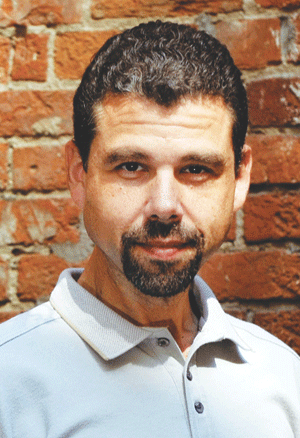Let’s see if you recognize or perhaps even resemble a common scenario.

You got into law school, so you have to go. You’re in law school, so you have to finish. You finished law school, so you have to article. You finished articles, so you have to get called. You got called, so you have to practise. You’re in practice, so you have to make partner.
Before you know it, 15 years have passed. After all of that time, are you where you want to be or are you where you’ve ended up?
The legal profession is one of those spheres of professional endeavour in which one step can often involuntarily occasion the next absent choice or the consideration of personal fulfilment. Working in the profession can be a wonderful and satisfying journey filled with new and fascinating challenges, accomplishments, financial rewards, and important and gratifying work done on behalf of worthy clients. There exist few professions that offer people as much opportunity for meaningful, impactful, and interesting work as the law.
Having stated that, the difficult truth is that a great many lawyers don’t find themselves either fulfilled or interested. They’re mostly just stressed out. In its 2005 survey, the National Association of Law Placement Foundation found that 48.1 per cent of supervised lawyers agreed with the statement, “I feel stressed and fatigued most of the time.” Too many people who canvass the responses they get from lawyer colleagues or friends come away with the impression that there are a lot of dissatisfied or sometimes even distressed individuals in the profession. Too many are where they ended up because they moved forward unconsciously. Some can’t fathom doing anything else because they don’t know how else to make enough money to pay for the personal and familial obligations they’ve taken on. Some feel that their dissatisfaction with work is a personal failing — a dragon to slay — and not a statement about what they ought to be doing with their professional lives.
This dragon-slayer predicament is particularly daunting for lawyers. For many, when their intention to master their task, as a good professional should aim to do, clashes with their ability or seeming inability to carry it out, their first instinct is to persevere and overcome. On its face, this is a healthy and positive reaction. People shouldn’t simply give up when confronted with challenges. Overcoming obstacles and self-doubt is very much an attribute of character.
But what if what you’re doing is contrary to who you are as a person and that’s why you’re having so much trouble doing it? What if your practice made you miserable and anxious all of the time to the point of experiencing severe depression and suicidal ideation? One client in this situation kept going to work while waiting for a crash to facilitate the change that was so necessary and yet seemed impossible to execute. In essence, failing was worse than dying.
While this logic seems disjointed, the compulsion to not fail is a powerful one for lawyers. It is, unfortunately, often more powerful than self-care and self-love. These individuals are highly critical of themselves. They judge themselves harshly for failing to surmount the blocks they find in the way of their fulfilment. Albert Einstein once said: “Everybody is a genius. But if you judge a fish by its ability to climb a tree, it will live its whole life believing that it is stupid.” If what you’re doing with your life doesn’t comport with who you are, you’re not stupid. You’re simply doing the same wrong things over and over again expecting, or at least hoping for, a different result.
Many in the personal coaching field describe personal fulfilment as a radical act. To allow yourself the presumption that you have the right to pursue a fulfilling life appears to be a frivolous fantasy to many people. People have children to feed, shelter, and school. Job markets aren’t always flush with opportunities that are ideally congruent with a person’s most satisfying aspirations. In the face of this reality, it’s a radical act to get off of the treadmill and make a conscious change while unsure of where it will lead or whether you’ll succeed. However, in my experience, doctor and author Gabor Maté got it right in his powerful book,
When the Body Says No: The Cost of Hidden Stress, when he illuminated the fact that people under extreme stress must consciously identify their stressors and change them or their body will unconsciously force that change upon them by shutting down and getting ill, whether physically or emotionally. It’s for this reason that I enthusiastically recommend people seek conscious and radical fulfilment over unconscious, cautious, and chronic dissatisfaction and eventual burnout. Living the life you want need not be radical at all.
Doron Gold is a registered social worker who’s also a former practising lawyer. He works with lawyers and law students in his private psychotherapy practice and will begin a new role as a staff clinician and educator at Homewood Human Solutions on March 4. He’s available at thelawyertherapist.ca.

 You got into law school, so you have to go. You’re in law school, so you have to finish. You finished law school, so you have to article. You finished articles, so you have to get called. You got called, so you have to practise. You’re in practice, so you have to make partner.
You got into law school, so you have to go. You’re in law school, so you have to finish. You finished law school, so you have to article. You finished articles, so you have to get called. You got called, so you have to practise. You’re in practice, so you have to make partner.